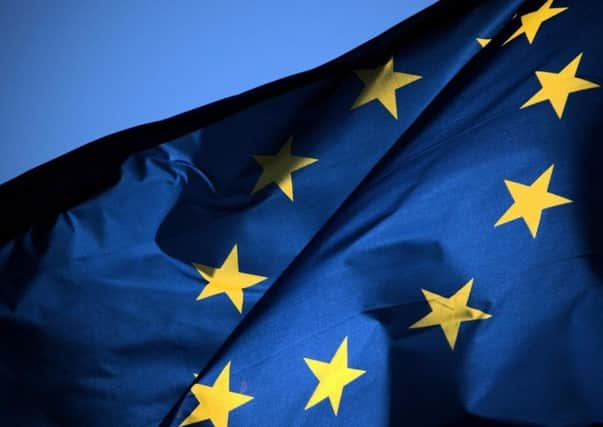Richard Corbett MEP: Democracy rules OK in the European Union


On the contrary, there is growing disquiet among many Leave voters that, having been told Brexit would be a cost-free exercise, it is actually turning out to be costly and damaging to our economy.
Far from saving money that would all go to the NHS, the shortfall in tax revenues that will be caused by Brexit will further squeeze public finances.
Advertisement
Hide AdAdvertisement
Hide AdLeave voters are entitled to complain that that is not what they were told, not what they were promised, and not what they voted for.
It is therefore not surprising that dyed-in-the-wool Brexit supporters such as John Redwood try to shift the debate away from the practical consequences of Brexit to intangible generalities and abstract assertions about regaining freedoms that we never lost and defending democracy as if Britain were the only democracy in Europe.
He concedes that it took a “long march” to secure democracy in Britain and that this was achieved step by step over centuries. It is less than 100 years ago that we finally secured universal adult franchise in elections.
But far from being a unique experience, this is something that every one of the 28 democracies that make up the European Union has gone through. Some, such as the Nordic countries and Holland, went, like us, through a step-by-step process. Others secured it more suddenly or more recently, for instance after the fall of fascist or communist regimes.
Advertisement
Hide AdAdvertisement
Hide AdBut all decided to work together to ensure that democracy and respect for human rights are entrenched in Europe and never again fall prey to demagogy or authoritarianism.
It is therefore somewhat odd to characterise democracies working together as a threat to democracy. Contrary to what Mr Redwood says, we have not lost or diminished our democracy by working together with our neighbours.
We as a country determine our own laws through our national parliament – but that same parliament has chosen to make some laws jointly with our neighbours.
This is done where it makes sense to have common rules, such as rules to protect consumers buying goods that are sold across our common market, or on air transport across our borders, or on enforcing court judgments on criminals fleeing to other countries.
Advertisement
Hide AdAdvertisement
Hide AdAccording to the House of Commons library, about 12 per cent of our laws are made jointly, with the other 88 per cent national (or devolved to Scotland, Wales and Northern Ireland – democracy does not exist only at one level!)
When we act jointly at a European level, laws are not, as is sometimes claimed, imposed by unelected bureaucrats. The European Commission has the right only to put forward proposals, not to decide on them. It is ministers, accountable to elected national parliaments, and MEPs, directly elected by citizens, who decide, and do so in public.
If we go ahead with Brexit, such rules will be adopted without British participation in the decisions. Yet many of those decisions will still affect us. As Theresa May said, Britain can leave the EU, but cannot leave Europe.
It is our neighbourhood, our main export market, and contains most of our closest allies. Opting out of the main framework through which our continent manages its affairs simply diminishes our influence.
Advertisement
Hide AdAdvertisement
Hide AdOn Mr Redwood’s particular gripe that the House of Commons has little influence on EU legislation, that is an indictment of the Commons, not of the EU. Other countries do this better.
In many of them, any minister going to an EU Council meeting has to appear beforehand in front of the relevant committee of the national parliament and square his or her negotiating mandate with them. There’s nothing stopping Britain implementing such a practice. It doesn’t need treaty change. It doesn’t need any European-level agreement.
It just needs a majority of MPs willing to vote for such a system – and for Mr Redwood and his colleagues to be willing to put in the work!
So, all in all, distracting attention from the economic problems of Brexit by making claims that 28 democracies have somehow ceased to be democratic because they work together on subjects where they are interdependent is spurious. It should be treated for what it is: yet another false claim by the Brexit wing of the Conservative party.
Richard Corbett is an MEP for Yorkshire and the Humber, and is the Labour Leader in the European Parliament.